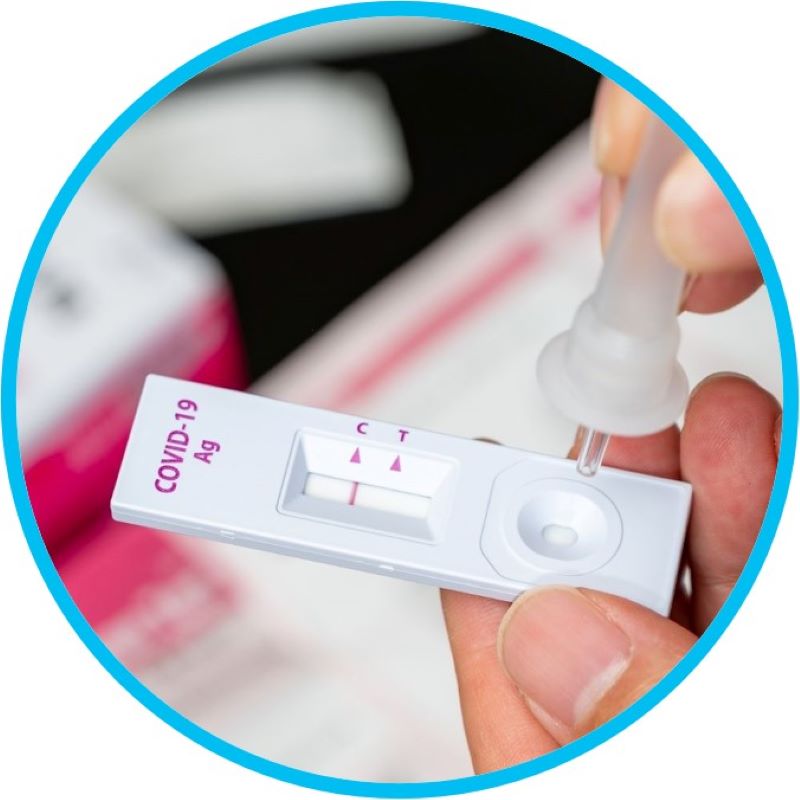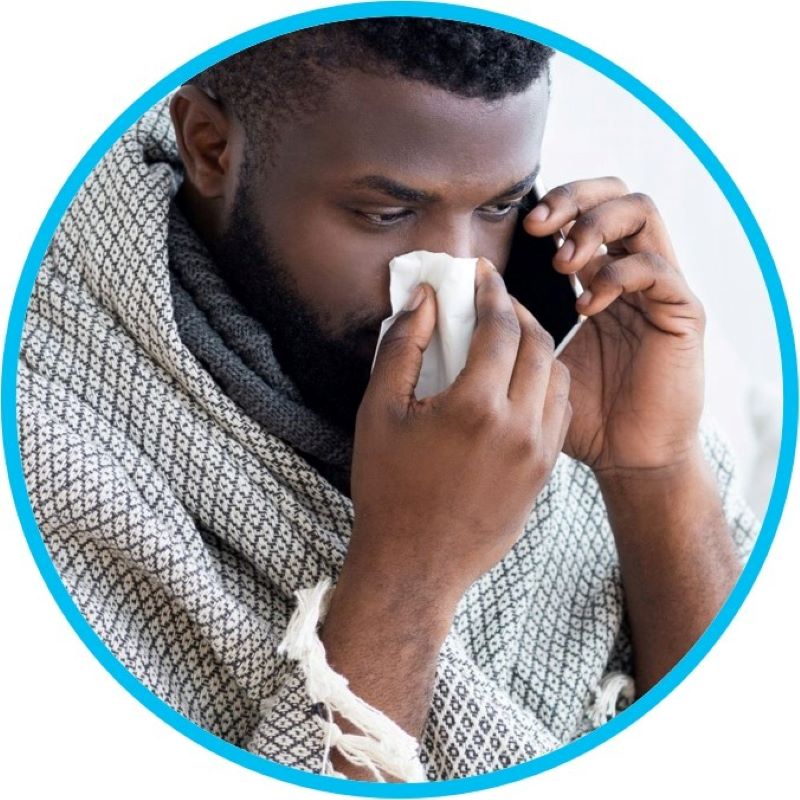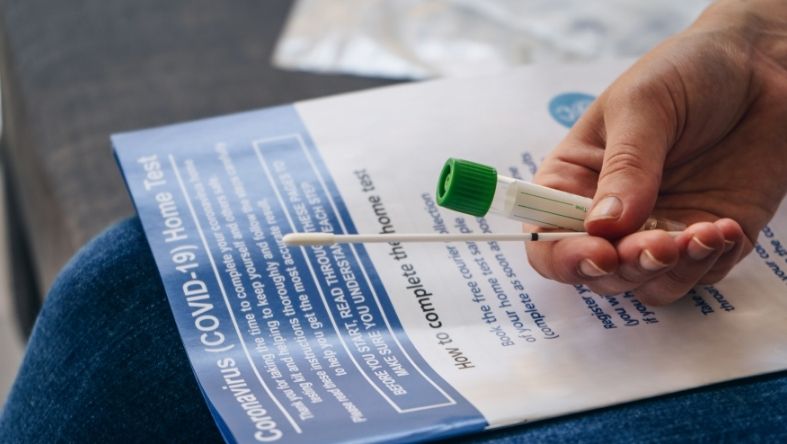What should we know about at-home tests?
We caught up with Dr. LuAnn Lawton Chen, Senior Medical Director of Community Health Plan of Washington (CHPW), to learn more about at-home tests—and what to do if your test is positive.

Testing is an important tool to help control the spread of COVID-19. At-home testing kits have become a popular option, but, for most, these tools are new and unfamiliar. That’s why we’re here to answer some of the our community members’ top questions.
– Dr. LuAnn Lawton Chen
First, what is an at-home COVID-19 test?
At-home COVID-19 test kits contain tests that you can perform and interpret yourself, without going to a clinic or testing site.

There are currently two types of tests available in Washington State:
- Antigen test, also called a “rapid test” – detects protein fragments specific to the COVID-19 virus in about 15 minutes
- PCR (reverse transcription-polymerase chain reaction) test – detects the RNA (genetic material) that is specific to the COVID-19 virus, with results available in a few days
- The PCR test is more accurate, but it does require you to mail your test to a lab and takes about 2-3 days to process.
Both tests come with detailed instructions on how to collect the necessary samples—typically with a swab in your nasal passage—and how to run the test correctly.
How accurate are at-home testing kits?
At-home testing kits are most accurate if you have a high amount of virus in your system. These kits are frequently negative before symptoms are shown or if it’s still early in the viral process. A repeat test is recommended if symptoms develop or if you know you were possibly exposed.
Additionally, PCR tests are less likely to show false positives than antigen tests.
How can I get an at-home COVID-19 test?
There are a few options to get an at-home COVID-19 test, including:
- Check with your insurance provider for in-network options and how you could be reimbursed for a purchase. Private health insurance will cover up to 8 at-home antigen tests per month.
- Order from covidtests.gov for U.S. Postal Service delivery of 4 tests per household
- Check the WA Department of Health website for additional sources
- Purchase at pharmacies, drug stores, or online. Be careful to make sure you’re ordering from a reputable online source and be cautious of high prices.
- Many Community Health Centers and other local organizations are also helping to distribute testing kits

Are you a member? CHPW Apple Health (Medicaid), CHPW Medicare Advantage, and CHNW Cascade Select members can get up to 8 tests per month with a $0 copay at in-network pharmacies. In person, online mail order, and reimbursement options available – see our COVID-19 page for details.
When should I use an at-home test?

If you are showing COVID-19 symptoms, you should take a test immediately. If you have symptoms and the initial test appears negative, it is possible an error might have occurred, and you should repeat the test a few days later. COVID-19 symptoms can include fever, sore throat, pink eye, runny nose, muscle aches, trouble smelling or tasting, cough, trouble breathing, headache, nausea, vomiting, and diarrhea.
If you were possibly exposed to COVID-19, you should take a test five days after the possible exposure, even if you have no symptoms. If symptoms develop, you should test immediately, and then repeat the test in a few days if it is negative. Remember, at-home tests aren’t as accurate early on.
You should also test yourself before getting together with those who have an increased risk of complications from COVID-19 (elderly, immune-compromised, or people who have not been vaccinated). If you have symptoms that could indicate COVID-19, you should not risk exposing others, even if you have a negative test.
What should I do if I test positive?
If you test positive:
1. Contact your health care provider for advice
2. Inform any contacts you might have had in the few days before becoming positive or developing symptoms. If you sign up for WA Notify, you can use the app to anonymously alert other app users of possible exposure.

Learn more
- Types of COVID-19 tests by the WA Department of Health
- Self-Testing: What you need to know by the Centers for Disease Control and Prevention (CDC)
- A Guide to COVID Tests by National Public Radio
- COVID-19 test coverage for CHPW/CHNW members

